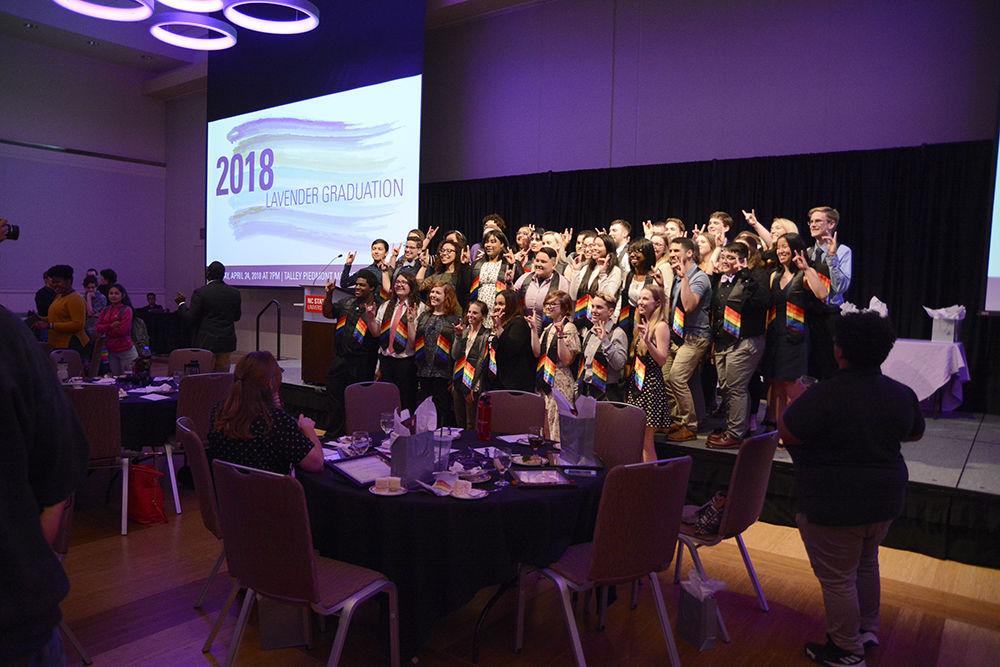As the GLBT Center has increased in population within the past years, the Center is now focusing on partnering with campus community centers to help students feel represented in different spaces on campus.
According to Andy DeRoin, program coordinator for the GLBT Center, engagement with the GLBT Center has increased especially as students within the center create spaces for themselves that they specifically identify with.
“When students get here and engage with us with [GLBT] Symposium they hear about other places that are of interest to them like our six different student organizations, a few of those are actually new like Bi/Pan and AcePack started officially two years ago,” DeRoin said.
As the GLBT Center has increased in growth, the Center is working to expand their events to welcome more participants in the different events such as Lavender Graduation.
“We historically haven’t capped anything,” DeRoin said. “Our numbers are as big as they can be, which is great. Lavender Graduation is going to be the entire State Ballroom and historically we’ve only had half of the ballroom.”
Jordan Desilva, a third-year studying chemical engineering and member of the GLBT Center, said that the growth of the GLBT Center could be due to more individuals seeing spaces that are inviting to them.
“Some of the growth was just people seeing it more as a space that they can want to spend time in, and feeling more inviting,” Desilva said. “Then some of the other growth is people knowing more about the meetings, knowing more about the resources available to them and just people getting more involved in this community.”
The GLBT Center is also focusing on intersectionality to help students who identify with several different groups. DeRoin said that working with the campus community centers to create programs that serve different students comes into play especially during different awareness months.
According to DeRoin, finding ways to incorporate what may be a student’s real living experience into things such as awareness months are a way to encompass experiences of several individuals. This year, Diversity Education Week will be a way for the intersectionality between all of the campus community centers to be exemplified.
“[Diversity Education Week] used to be administered out of a different part of [the Office of Institutional Equity and Diversity], but this year it’s being led by Reggie Barnes, our senior director for our campus community centers,” Deroin said. “Because he’s charging that effort, he’s able to engage us across centers and in new ways so that Diversity Education Week is really intentional about the intersections of identities that are represented.”
Desilva said that he wanted more individuals to feel more comfortable being themselves at different places and organizations.
“I want it to spread to everyone,” Desilva said. “I don’t want to have to feel like I’m splitting myself up into a certain few pieces so that I can try to fit better into one space and then split again into another. I want to feel like I can be all of me everywhere I go, and I want everyone to feel that way. Intersectionality is important to help people feel like they can be their whole selves and their best selves wherever they go.”
DeRoin emphasized that the importance of intersectionality is so students can find homes in multiple campus community centers and see themselves represented on campus. They also said that students who are not part of these specific communities can come together and advocate for the importance of diversity on campus.
“For students that don’t hold marginalized identities, the level of synergy that we can bring can help students who hold marginalized identities to recognize that this is important, that diversity matters at NC State and ‘maybe I need to be a part of that,’” DeRoin said.
Students who are interested in NC State’s GLBT Center can visit the website or the center located on the fifth floor of Talley Student Union in suite 5230.








